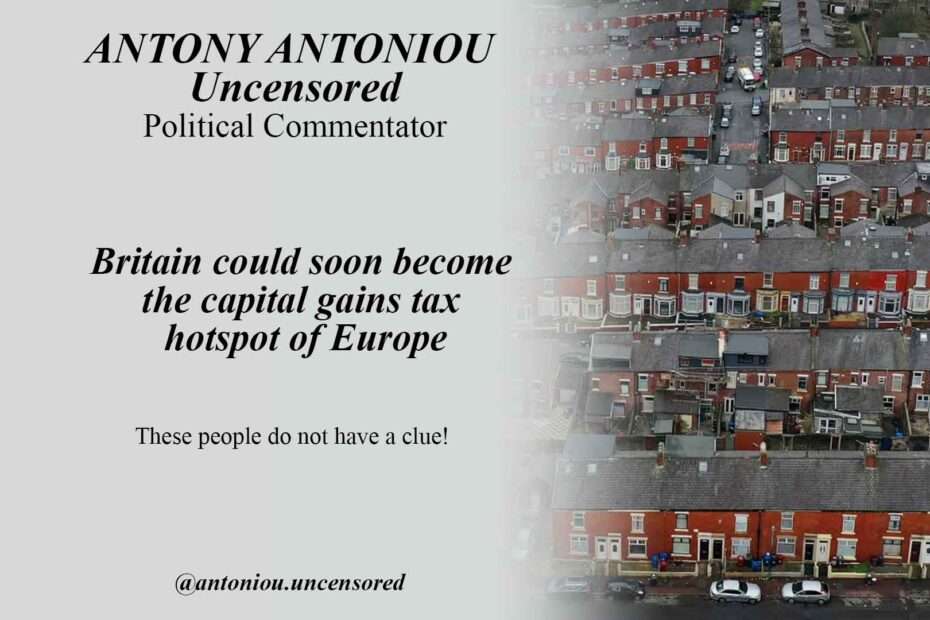Britain could soon become the capital gains tax hotspot of Europe
The government has not ruled out increases of more than 30pc, Rachel Reeves could saddle Britain with some of the highest capital gains tax (CGT) bills in Europe if she follows through with tipped Budget reforms.
Rumours swirled this month that Reeves could align capital gains with income tax, meaning rates could rise up to 45pc for the highest earners. Such a move would catapult the UK from 14th to first in the European rankings for CGT charges on non-property assets, overtaking Denmark at the top of the charts.
The Nordic country currently leads the way, charging up to 42pc on asset sales. It is followed by Norway (37.8pc), France and Finland (34pc), and Ireland (33pc).
This week the Treasury dismissed a story that suggested Labour had modelled raising the rate to 39pc, however, the source did not deny it could be increased to more than 30pc. Even at a rate of 30pc, the UK would have the seventh highest capital gains tax in Europe.
As it stands, higher-rate and additional taxpayers are charged 24pc on profits made from the sale of second properties and 20pc for other assets. Basic rate taxpayers pay 18pc and 10pc respectively.
The prospect of the UK having one of the highest CGT rates would not just put the brakes on overseas investment, it would be catastrophic for the economy.
A number of countries including Luxembourg, Denmark and Hungary already charge CGT at the same level as income tax, while Belgium and Switzerland are CGT-free.
Landlords and investors are already scrambling to sell in anticipation of a CGT shake-up in Labour’s self-labelled “painful” Budget on October 30.
In the last few weeks and month, the market has been flooded with ex-BTL properties, as Landlords bail out en-mass, causing the number of properties available for rent to plummet.
The looming threat of higher tax bills saw HM Revenue & Customs (HMRC) pocket a record £197m in August, with tax advisers reporting a surge in inquiries from middle-class investors panicking about the risk of higher bills.
The Government may even cut the remainder of the annual £3,000 tax-free allowance for investment profits, which has already faced a series of drastic cuts in the past two years, with the Tories lowering it from £12,000.
As I have previously said, I can’t think of anything more obtuse, considering that there are over 670,000 empty properties in England alone, most of which are unfit for use, or derelict and would only be brought back into use by everyday people like you and I, but rather than offer additional incentives, albeit subject to bringing these properties up to a minimum standard, they have made the entire process of renovating 2 & 3 bed family homes unattractive, especially as there is already a 3% stamp duty surcharge, which was introduced by the fiscal wizard, George Osborne.
Let’s put party politics to the side for one moment and focus on the economy, it is clearly obvious that this administration has absolutely no clue, they are missing the simplest and most obvious formula in generating revenue, the fast the rotation of money in the economy, the smaller the portion that is required to fill the coffers and conversely, the slower the rotation, the large the slice.
Whilst I am personally against overseas investors being able to park their money in our properties, taking them out of circulation and leaving them empty, I fervently believe that with suitable tax incentives, these investors could be encouraged to invest into building starter homes and social housing on the vast number of brownfield sites across the country which have the capacity for between 1.2 and 2 million homes, or we could just leave it to Angela Rayner.

